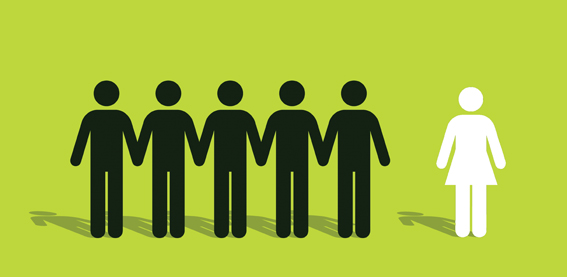The Real World

June 2014 The Psychologist, 27 (6), 387.
Marshall McLuhan may no longer be quite as popular as he once was, but his expressions 'the medium is the message' and 'the global village' are still known to most of us.
The former refers to the idea that communications technologies are never neutral. They reframe our cognitions, our perceptions and our feelings in such a way as to shape the content of what we say as well as our ability to say it to others. Technology thereby reshapes the nature of our social interactions. A simple study, from many years ago, before windows made all computers look pretty much the same, made this point elegantly. People were asked to write an essay using either an Apple or a PC. Blind raters judged those using the former as highly stylish but less precise while those using the latter put less emphasis on style and more on precision. So beware! The brand is not just an expression of who you are, it can create who you will be.
The latter expression, 'the global village', refers to a new form of electronic interdependence that will bring us all closer together. In the 1960s that was science fiction. After McLuhan's death it became an everyday reality and so he has come to be seen as the prophet of the internet. Certainly the web, social media and other text technologies are changing the language, but how are they impacting social relations?
There are two contrasting narratives here. One reflects belief in an explosion of democracy, where the voice of ordinary people can challenge the media barons, where bloggers rival columnists and the twittersphere can rival or even usurp the news. All are equal in the virtual world.
The other narrative points to the way that this democracy is permitted only so long as it is impotent, that state surveillance employs the web to keep us impotent and that, if ever the web starts to challenge power, the powerful will shut it down. The illusion of equality in the virtual world serves to maintain inequality in the real world.
But both these narratives still treat the internet as no more than a space which alters which voices are heard and not heard. They don't apply the full radicalism of 'the medium is the message' to 'the global village'. They don't address the way our voices are changed in this new era of electronic interdependence. And this may be the most important way in which issues of equality and democracy are played out through the web.
Most disturbingly - and of relevance to the theme of the current issue of The Psychologist — there is growing evidence that the voice of the internet is increasingly masculine. A recent book by Astra Taylor (The People's Platform) shows that some 90% of those who contribute to key internet sites are men and that over 85% of Wikipedia articles are written by men. This bias is not limited to who writes, it also extends to who is written about. A recent study of 300 millions tweets in the US showed fewer mentions of women — especially by men.
The danger here is of an accelerating spiral of exclusion. The more the internet is a space where women are absent (apart, that is, from being objects for the masculine gaze), the more they will feel unwanted and absent themselves. This is the message of work by Steve Wright in Vancouver, Michelle Ryan in Exeter and others who show how subtle cues about 'who belongs here' are critical to processes of exclusion. Interestingly too, recent research led by Kim Peters at the University of Queensland shows that in macho cultures — specifically those created by surgeons and marines — not only women, but also some men, may be put off if they don't feel they match up to a hyper-masculine norm.
The internet, then, is not the solution to social inequality, it is a site where inequality — gender inequality in particular — must be challenged. The message of the medium is that, otherwise, the global village will still be a man's world.
The Real World
A Migrant is not a migrant by any other name
October 2015
Putin: The Naked Truth
April 2014
Genius and creativity (re)explained
October 2013
In praise of asylums
September 2013
You had to be there
June 2013